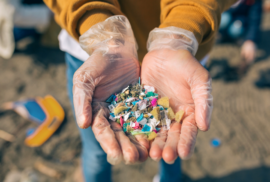Water
As the Great Lakes State, Michigan is home to some of the most beautiful and globally rare freshwater resources in the world that accompany our many smaller lakes and streams. Below the surface lies our unspoken sixth Great Lake: groundwater. But pollution, climate change and years of backsliding on critical protections have left our water seriously vulnerable. If we hope to continue enjoying the many recreational and ecological benefits that our water provides, we must restore, strengthen and create laws that protect it.

Our vision for change
Pass legislation to prevent dangerous pollution from entering waterways, improve stormwater infrastructure, and make drinking water more accessible and affordable for all Michiganders.
Establish a statewide septic code
Reinstate our state's ability
Create a new agricultural program
Increase funding
Discover
Check out news, policy updates and impact stories focused on water.
Strategic Water campaigns
We must reinstate the state's ability to change rules that protect our lakes and streams.
We must establish a statewide code and inspection system to ensure failing systems are identified and fixed.
Power environmental change today.
Your gift to the Michigan Environmental Council is a powerful investment in the air we breathe, our water and the places we love.
Sign up for environmental news & stories.
"*" indicates required fields





